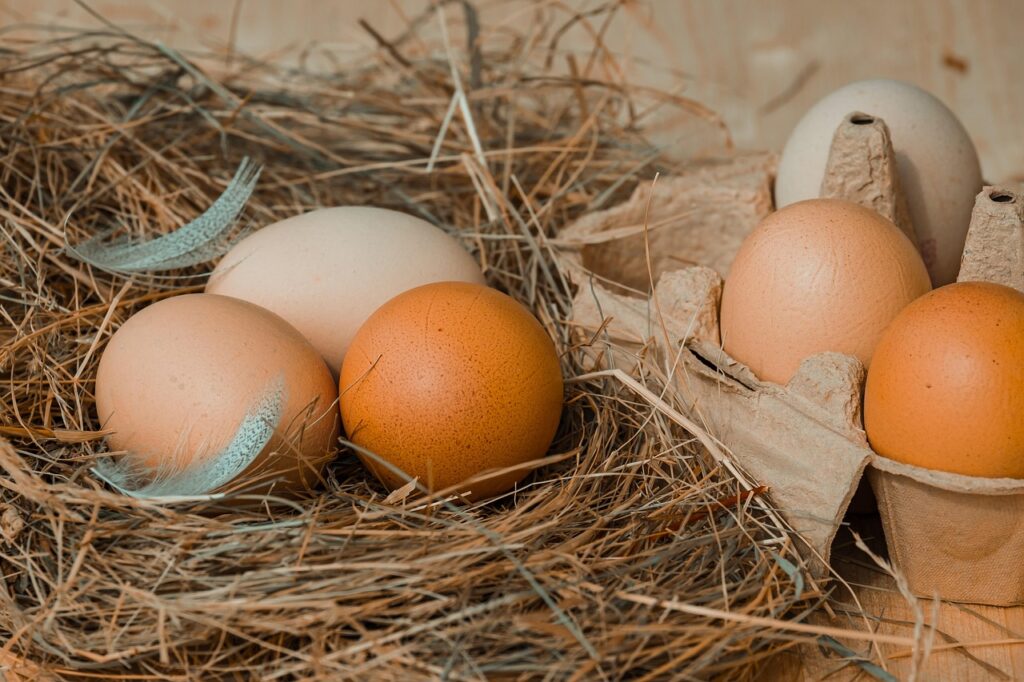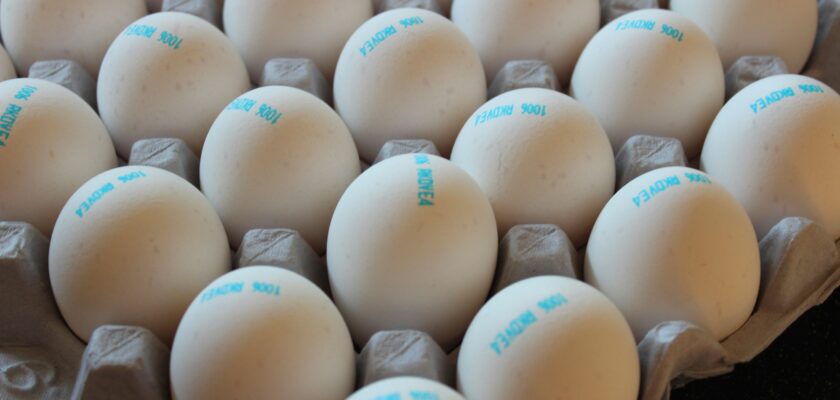Introduction
Eggs are a staple in kitchens around the world, cherished for their versatility and nutritional value. But how long do fresh eggs last, and what can you do to ensure they stay safe and delicious? In this guide, we’ll explore the actual shelf life of eggs, how to spot a bad egg, and share 15 powerful tips to keep your eggs fresher, longer.

Image by Steve Buissinne from Pixabay
Why Egg Freshness Matters
Nutritional Benefits of Fresh Eggs
Fresh eggs offer optimal levels of vitamins like B12, D, and selenium. The proteins and fats are more stable, and the taste is notably superior—especially noticeable in dishes like poached eggs or soufflés.
Risk of Consuming Expired Eggs
Old eggs can harbor Salmonella or other bacteria. Spoiled eggs also lose protein quality and taste. Consuming expired eggs may result in nausea, vomiting, or worse—foodborne illness.
How Long Do Fresh Eggs Last?
Let’s break down egg longevity by storage method:
Unrefrigerated Eggs
- Farm-fresh, unwashed eggs can last up to 2 weeks at room temperature.
- In countries where eggs aren’t washed (like the UK), it’s common to store them unrefrigerated.
- Note: Room temp speeds up degradation if ambient temp exceeds 70°F.
Refrigerated Eggs
- Store-bought eggs last 3 to 5 weeks in the fridge.
- Always store them in the main body of the fridge, not on the door.
- Keep them in the original carton to prevent moisture loss.
Frozen Eggs
- Eggs (yolks and whites separated or mixed) can last up to 1 year in the freezer.
- Never freeze eggs in the shell—they’ll crack and become unsafe.

Signs That Eggs Have Gone Bad
Use your senses—and a few clever tricks:
- Smell test: Rotten eggs have a distinct sulfur smell.
- Float test: Fill a bowl with water. Fresh eggs sink; bad ones float.
- Shell check: Slimy or powdery shell = bacteria or mold.
- Crack it open: Cloudy whites are fine; pinkish or green yolks are not.
How to Store Fresh Eggs Properly
Refrigerator Storage Techniques
- Store at below 40°F (4°C)
- Use an airtight container for farm eggs
- Avoid storing near strong-smelling items—eggs absorb odors
Freezing Eggs Correctly
- Crack and whisk before freezing
- Use ice cube trays to portion out eggs
- Label with the date and contents
Room Temperature Tips (for farm-fresh eggs)
- Only leave unwashed eggs at room temp
- Avoid sunlight or humidity
- Use a covered basket or ceramic egg holder

15 Powerful Tips to Extend Egg Freshness
- Store eggs pointy side down
- Keep in original carton
- Don’t wash farm eggs until use
- Avoid temperature swings
- Store away from strong odors
- Rotate stock—oldest in front
- Freeze excess eggs
- Don’t crack until ready to use
- Refrigerate immediately after purchasing
- Use vinegar water for gentle cleaning
- Store on middle shelf (not door)
- Keep below 40°F
- Check eggs weekly with float test
- Use egg preservative oils like mineral oil
- Avoid plastic egg trays that expose to light
Common Myths About Egg Expiration
- Myth: The sell-by date is the expiration date
Reality: Eggs can be safe 2–3 weeks after sell-by if stored properly. - Myth: Blood spots mean eggs are bad
Reality: These are harmless and natural.
Do Eggs Really Expire After the Sell-by Date?
Nope. Sell-by dates are more about inventory management than safety. If eggs are stored cold and pass the float test, they’re likely still good.
Egg Freshness and Different Breeds
Heritage breeds often produce eggs with thicker shells, extending shelf life. Diets rich in flax or seaweed may also enhance freshness naturally.
Fresh Eggs vs Store-Bought Eggs
| Feature | Farm-Fresh (Unwashed) | Store-Bought |
| Shelf Life (fridge) | 3 months | 5 weeks |
| Coating intact? | Yes (bloom) | No |
| Wash required? | No (if storing unrefrigerated) | Already washed |
| Best storage? | Cool pantry or fridge | Fridge only |
How Commercial Eggs Are Preserved
Commercial eggs in the U.S. are washed, removing their natural protective coating (bloom). That’s why refrigeration is critical. Some are also pasteurized for safety.
FAQs About Fresh Egg Shelf Life
1. How can I tell if an egg is still good without cracking it?
Try the float test. If it sinks, it’s good. If it floats, toss it.
2. Can I eat eggs past the expiration date?
Yes, if stored correctly and showing no spoilage signs.
3. Is it okay to store eggs in the fridge door?
Not recommended. Temperature fluctuates too much.
4. How do I freeze eggs for baking?
Crack, whisk, and pour into trays. Add a pinch of sugar (for baking) or salt (for cooking).
5. Do farm-fresh eggs need to be washed?
Only if you’re refrigerating them. Washing removes the bloom.
6. What’s the safest way to store leftover yolks or whites?
Use an airtight container, refrigerate, and use within 2 days.

Image by NoName_13 from Pixabay
Conclusion
Understanding how long fresh eggs last is essential for both food safety and reducing waste. Whether you’re gathering from your own coop or buying from the store, these tips will help you store eggs properly and confidently.
